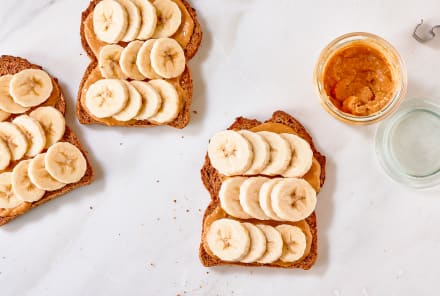Advertisement
I’ve Studied Trauma For 30 Years: How To Cope With Holiday Triggers


Let’s face it: the holidays are stressful.
To start off, many of us deal with crowded airports and travel nightmares to visit family and friends. Those who host the event are overwhelmed by all that’s required to pull off a feast with all the fixings.
Parents can get frazzled when their kids are disappointed, cranky, or overly excited. They may reach for social media to take a quick break from all the commotion and end up feeling even more awful because of all the images of happy, joyful, idyllic families having their “best holiday ever.”
Now, imagine going through this with a trauma history. If you are already plagued by symptoms of post-traumatic stress disorder (PTSD), it makes an already stressful time of the year nearly impossible to manage.
Why the holidays can trigger trauma
People who grew up in a dysfunctional family or suffer from relationship trauma, for example, may find this time of year especially difficult.
This is because going home for the holidays frequently activates memories from the past, causing people to regress into child-like behaviors when they encounter difficult family members. Reminders of painful childhood experiences are around every corner. Watching Frosty the Snowman, putting up a Christmas tree, or having a heated discussion about politics during Thanksgiving dinner can activate unresolved trauma from the past.
Trauma survivors are often faced with difficult decisions during the holidays: Do I go back home to the scene of the crime or Do I stay home and spend the holidays alone? Both choices are often associated with negative consequences. But what if there was a way to be less stressed and make healthier choices during the holiday season?
The 4 "Rs" of dealing with trauma triggers
When dealing with trauma triggers, practicing the 4 Rs can help survivors make choices from a more mindful, centered place.
Response
First, be aware of your responses. It’s important to know that reacting strongly to people or upsetting situations is our psyche’s way to keep painful memories at bay. When you yell or raise your voice, or even shutdown and withdraw, try being self-compassionate, not self-critical, of your responses. Remember that you’re doing your best to manage a situation that feels threatening or out of your control.
Reassurance
Second, be reassured that you have all you need to take care of yourself and make good decisions.
Trauma survivors lose their power and sense of agency when they endure something traumatic. Boundaries are violated and helplessness takes over. Connecting to your inner strength and wisdom when making decisions that are difficult is corrective and empowering.
If you choose to visit family over the holidays, set clear expectations ahead of time. Call and let them know how and when you’ll be visiting them. Stay in a hotel or with a friend. Have an exit strategy, speak up, set limits, or leave when things get heated. If you choose not to go home, don’t isolate yourself. Reach out and make plans with friends or neighbors, make a phone date with a friend, or host a party and invite people with whom you enjoy spending time.
Release
Next, release what doesn’t belong to you. We all absorb things in our environment and internalize the behaviors and beliefs of those around us. It’s important to be aware of your actions and determine if they’re yours and align with your views or came from someone else. You can let go of beliefs that don’t serve your best interest.
Rising above
Last, rise above those who have harmed you.
It’s important not to take responsibility for how you were treated. This is the root cause of shame, and it can look like telling yourself: I’m bad because he told me I was, or I’m worthless because she ignored and neglected me.
Instead, see if you can make the choice to forgive. Forgiving someone doesn’t let them off the hook or condone their behavior. Instead, forgiveness frees you from carrying the pain, anger, and sadness that was brought into your life because of the actions of another.
The takeaway
Holidays are challenging for all of us; they’re even more challenging for those who suffer trauma.
If we recognize our responses as our best attempt to protect us, are reassured that we have what we need inside of us to make good decisions, release what doesn’t belong to us, and rise above the actions of others, our trauma doesn’t dominate our lives or dictate our decision making.
Following the four Rs allows us to have the holidays we want—ones that are filled with more joy, laughter, love, and gratitude.

5 Subtle Signs You Might Be Low In Omega-3 Fats & What To Do About It
Molly Knudsen, M.S., RDN

This Antioxidant-Rich Fruit Is A+ For Sleep & Recovery, Research Shows
Molly Knudsen, M.S., RDN

Which Is Healthier: One Drink Daily Or A Few Drinks On The Weekend?
Molly Knudsen, M.S., RDN

5 Subtle Signs You Might Be Low In Omega-3 Fats & What To Do About It
Molly Knudsen, M.S., RDN

This Antioxidant-Rich Fruit Is A+ For Sleep & Recovery, Research Shows
Molly Knudsen, M.S., RDN

Which Is Healthier: One Drink Daily Or A Few Drinks On The Weekend?
Molly Knudsen, M.S., RDN

5 Subtle Signs You Might Be Low In Omega-3 Fats & What To Do About It
Molly Knudsen, M.S., RDN

This Antioxidant-Rich Fruit Is A+ For Sleep & Recovery, Research Shows
Molly Knudsen, M.S., RDN

Which Is Healthier: One Drink Daily Or A Few Drinks On The Weekend?
Molly Knudsen, M.S., RDN

5 Subtle Signs You Might Be Low In Omega-3 Fats & What To Do About It
Molly Knudsen, M.S., RDN

This Antioxidant-Rich Fruit Is A+ For Sleep & Recovery, Research Shows
Molly Knudsen, M.S., RDN

Which Is Healthier: One Drink Daily Or A Few Drinks On The Weekend?
Molly Knudsen, M.S., RDN












